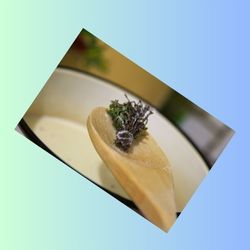The Medicinal Marvel of the Mediterranean
Welcome to the intriguing world of herbal medicine 🌿 where ancient wisdom meets modern remedies. 💚
[**This post is part of a spin-off from a post on the Medicinal Garden Kit, your gateway to creating your own "backyard pharmacy" and healing oasis at home. 🌱
Watch out for our next post as we discover the healing powers of more herbs.
For now - sit back, relax, and embark on a journey of discovery with us.✨]
🌿 Introducing the Herbal Powerhouse: Thyme 🌿
Welcome to a world of natural remedies and botanical wonders! In the realm of herbalism, few herbs have captured the attention and admiration like thyme.
With its rich history dating back centuries, this humble herb has become a staple in traditional medicine practices around the globe.
Known for its distinctive aroma, thyme not only adds flavor to culinary creations but also holds a multitude of therapeutic benefits. From supporting respiratory health to promoting digestion and boosting immunity, thyme is a true powerhouse in the world of herbal remedies.
Join us as we dive into the remarkable role of thyme in herbalism and unlock the secrets of this extraordinary herb.
Get ready to discover the fascinating properties, applications, and potential that this tiny botanical treasure holds. Let's embark on a journey to uncover the wonders of thyme together! 🌿✨
What is Thyme?
Thyme is an herb that belongs to the plant family Lamiaceae, also known as the Mint family. It is scientifically known as Thymus vulgaris and is primarily indigenous to the Mediterranean region.

Thyme is a small, woody perennial plant with gray-green leaves and tiny purple or pink flowers.
Cultivation and Usage
In herbalism, thyme is cultivated in gardens or commercial farms. It prefers well-drained soil and plenty of sunlight. The herb is typically harvested by cutting the stems just above the leaves.
It can be used fresh or dried for later use. Once harvested, thyme can be processed by drying the leaves and storing them in airtight containers.
Thyme has a long history of use in herbal medicine. It is known for its antiseptic, antimicrobial, and antispasmodic properties.
Some of the ailments or conditions thyme can be used to treat include
- respiratory infections,
- coughs,
- sore throats,
- bronchitis, and
- digestive issues.
*Thyme is also believed to have immune-boosting properties and can be used topically to help heal wounds and relieve skin irritations.
Its Applications
Thyme, a versatile herb widely used in herbalism, offers various applications for promoting health and well-being.

Here are some key ways in which thyme is utilized in herbal medicine:
Respiratory Health: Thyme has long been valued for its ability to support respiratory health. It can help alleviate symptoms of respiratory infections, coughs, and congestion. Thyme's expectorant properties help loosen mucus, making it easier to expel, while its antimicrobial properties can help combat respiratory pathogens.
Digestive Support: Thyme is known for its carminative properties, which means it can aid in digestion and relieve gastrointestinal discomfort. It can help soothe indigestion, bloating, and colic. Thyme also stimulates the production of digestive enzymes, supporting optimal digestion.
Immune Boosting: Thyme possesses immune-stimulating properties and is often used to strengthen the body's natural defense mechanisms. Its antimicrobial properties help fight off infections, whether bacterial or fungal, and may contribute to overall immune support.
Antioxidant Effects: Thyme contains potent antioxidants that help protect the body against damaging free radicals. These antioxidants, including thymol and carvacrol, have been studied for their potential anti-inflammatory and anti-aging effects.
Topical Applications: Thyme can be applied topically to address various skin conditions. Its antiseptic and antimicrobial properties make it useful for treating acne, minor wounds, cuts, and skin irritations. Thyme-infused oils or creams are commonly used in natural skincare products.
Oral Health: Thyme's antibacterial characteristics extend to oral health. It can be used as a mouthwash or added to toothpaste formulations to help combat oral bacteria, freshen breath, and promote gum health.
Culinary Use: Beyond its medicinal applications, thyme is a popular culinary herb prized for its aromatic flavor. It adds depth and zest to a variety of dishes, including soups, stews, meats, and vegetables.
Precautions
It's important to note that while thyme has a long history of traditional use and is generally considered safe, individual reactions may vary.
As with any herbal remedy, it's advisable to consult with a healthcare professional before using thyme for medicinal purposes, especially if you have any underlying health conditions or are taking medication.
When consumed, thyme interacts with the body by stimulating the production of enzymes that can enhance digestion and support a healthy immune system. It contains compounds such as thymol, carvacrol, and flavonoids, which contribute to its medicinal properties.
As with any herbal remedy, it is important to use thyme in moderation and consult with a healthcare professional before using it for medicinal purposes. Thyme may cause allergic reactions in some individuals, and excessive consumption may lead to gastrointestinal upset.
It is always recommended to source thyme from reputable suppliers and follow proper dosage guidelines.
The Takeaway
Summing up ... thyme is a remarkable herb that has earned its place of honor in the world of herbalism.
From its aromatic presence in the kitchen to its potent medicinal properties, thyme offers a plethora of benefits for our health and well-being.
Whether it's providing respiratory relief, supporting digestion, boosting the immune system, or enhancing oral health, thyme stands as a versatile and powerful ally in natural healing.
Your Next Move
So, why not embrace the magic of thyme and incorporate this herbal wonder into your daily life?
Explore the countless possibilities, from brewing thyme-infused teas to adding it to your culinary creations and enjoying the delightful aroma that fills the air. Let thyme be your companion on the journey towards holistic wellness.
Embrace its time-honored traditions and experience the bountiful blessings that nature offers through this extraordinary herb.
Remember, nature's remedies are often found in the simplest of things - and thyme is a testament to that.
So, seize the opportunity to harness the incredible potential of thyme and unlock a world of vibrant health and vitality ...
... embark on a holistic path toward improved health and vitality. 💚
If you want to explore even more about these and other treasures in herbal medicine 🌿 ...
Thank you for stopping by and reading along with us ...
Sources:
"Thyme." Wikipedia. https://en.wikipedia.org/wiki/Thyme
"Thymus vulgaris (Common Thyme, Garden Thyme, German Thyme)." NC State Extension. https://plants.ces.ncsu.edu/plants/thymus-vulgaris/
"Thyme." Encyclopedia.com. https://www.encyclopedia.com/plants-and-animals/plants/plants/thyme
"Thyme in Herbal Medicine." verywellhealth. Retrieved from Link
"Thyme." HerbWisdom. Retrieved from Link
"Thyme Herbal Remedies." HerbalSupplementResource. Retrieved from Link
"Thyme." Healthline. Retrieved from Link
"Thyme." WebMD. Retrieved from Link
Disclaimer.
When you purchase through links on our site, we may earn an affiliate commission (that's how we stay in business). FirstFewFinds may use affiliate links to products and services on retailer sites for which we can receive compensation if you click on those links or make purchases through them. We hope you find the list of our first few finds useful and helpful. Each product on our list has been carefully chosen by our writers and all opinions are our own. Check your choices and enjoy finding exactly what you need!








